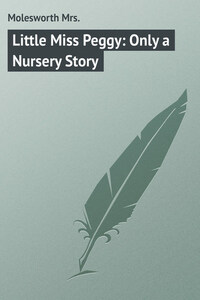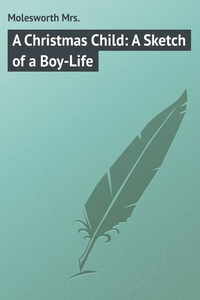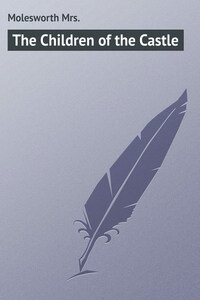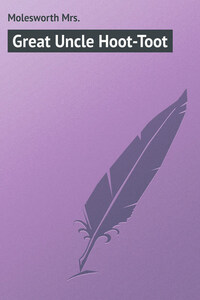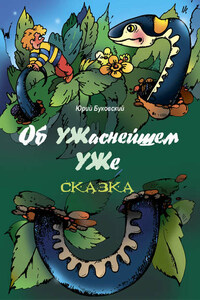Chapter One.
“Such Nice-Looking People.”
“Yes,” said my father, “there is no doubt about it; it is the best thing to do. So that is decided.”
The “yes” was no expression of agreement with any one but himself. It was simply the emphatic reiteration of the decision he had already arrived at.
He folded up the letter he had been reading, and replaced it carefully and methodically in its envelope, then glanced round the breakfast-table with the slightly defiant, slightly deprecating, yet nevertheless wholly good-tempered air which we all knew well —so well that not one of us would have dreamt of wasting time or energy by beating his or her wings against the bars of the dear man’s resolute determination.
Some faces fell a little, others expressed philosophic resignation, one or two, perhaps, a kind of subdued exhilaration; but no one said anything except mother, who replied quietly, as was her wont —
“Very well; I daresay you are right.”
Then ensued a little talk as to the details of the proposal, or rather decision, just announced, and five minutes later the family group had dispersed.
The one face on which something more than resignation had been distinctly legible was that of my youngest brother, Moore.
He was only fourteen, an age at which – for boy nature especially – it does not take much provocation to get up one’s spirits to some pitch of agreeable excitement and expectancy. He ran after me as I left the dining-room, and followed me down the long cold stone passage leading to what he and my other brothers and I myself considered our own quarters. Then, as he overtook me, he slipped his hand through my arm.
“Do you mind, Reggie?” he said in a tone of some deprecation of his own satisfaction. “I think you might be a little pleased – any way for my sake. It’s awfully jolly for me.”
“Then I will be pleased, really pleased, my poor old Othello,” I replied, heartily, I think. For Moore was our baby and pet, and we thought him irresistible. He was so pretty – everybody said that he, and not I, should have been the girl, if only one girl there was to be among us. He was fair-haired and fair-complexioned, yet not insipid looking, for his eyes were deeply blue, or at least appeared so, thanks to their bordering of dark eyelashes. “Irish eyes,” though in other respects Moore’s beauty was decidedly of the Saxon type. He had a right to his Irish eyes, as the rest of us to our Irish locks and browner skin. For Irish we were, really so as to ancestry, and in many particulars as to inherited character, though none of us, not even my parents since their childhood, had ever been in Ireland.
Moore’s face beamed, and lost its half-apologetic expression.
“Good old Reggie,” he said. “Then I’ll let myself be jolly right out, however Terry and Horry and Ger grumble at mother and you going away before the holidays are over,” and he showed signs of whooping or hurrahing or something of the kind, which I hastened to nip in the bud.
“You had better be quiet about it, however you feel,” I said warningly, “or father will begin to think you don’t need change and rest, and all that kind of thing, after all.”
“No, he won’t,” the boy replied confidently. “He never goes back once he’s settled a thing. You know he never does, Reggie. Sometimes,” and here certain reminiscences momentarily sobered his expression, “sometimes I wish he would – ”
“And,” I continued, “you’d better not let Terence and Gerald hear you talk of holidays. They don’t own to anything but vacations now.”
“That’s just because they’re not really grown-up,” said Moore shrewdly; “at least not out in the world. Look at Jocelyn now – he might give himself airs. But he always talks of his holidays when he comes home. He very seldom even calls it ‘leave,’ though he is – how old is he now, Rex? Twenty-five? Yes – eleven years older than I.”
“We’re all getting very old,” I said. “I shall be eighteen next spring. Can you believe it? And there’s only Horace between you and me. We shall all be grown-up before we know where we are, Moore.” And I sighed as I said it. I did not want to be grown-up or to come out. Life suited me very well indeed just as it was, especially since we had left off going abroad every winter, and part of the summer too, sometimes, for mother’s health. She had been so much stronger of late years, that we had been able to settle down in our own home, which I loved better than any place in the world, both for its own sake and because here I could enjoy to the full the society of my five brothers whenever “holidays” or vacations or leaves allowed them to be with us. So perhaps it is not to be wondered at that my father’s breakfast-table fiat was something of a disappointment to me, though to many girls of my age it would have been received with delight. For it was the announcement of his decision that we were to set out on our travels again, to spend the next few months at least, out of England, at some German baths in the first place, and later on at one of the usual winter resorts for invalids.


